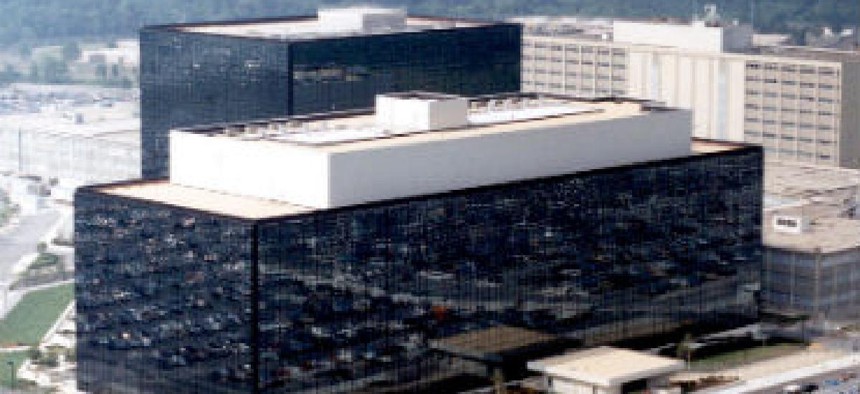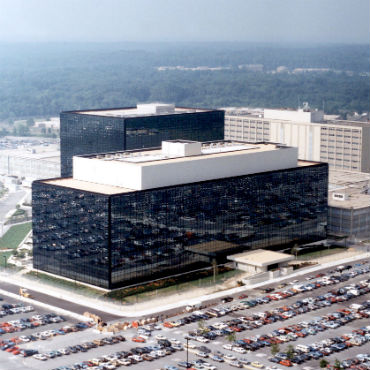White House details plans for protecting bulk metadata

Telephone companies will retain the records, but will have to ensure a "usable format" for the National Security Agency.

The administration plans to end the National Security Agency's practice of bulk collection of telephone records, and instead obtain specific records from telephone companies when approved by judicial order.
The White House on March 27 shared details of plans to end the National Security Agency's bulk collection of telephone metadata from U.S. carriers, and instead target only phone numbers approved by a judicial order, except in cases of emergency.
Under the proposed plan, detailed by a senior administration official on a phone call with reporters, the government would not collect and store phone records for the purpose of creating a big haystack to search for terrorist networks and possible threats, as had been authorized under Section 215 of the Patriot Act. The records will remain with the telephone companies, and the government could obtain records under the order of a Foreign Intelligence Surveillance Court.
The telephone companies are required by the Federal Communications Commission to retain billing records for 18 months. The new plan does not extend that time period.
In cases of emergency, intelligence agents will be able to proceed at their own discretion. It is not clear what would constitute an emergency under the administration plan.
Record requests would include metadata on calls made to and from targeted numbers at two degrees of remove, or "hops" in intelligence community jargon. That means an approved request on a single phone number or selector could generate the return of records of calls both to and from that number, as well as records on all the numbers called by those numbers linked to the original selector.
This will of necessity require the cooperation of multiple carriers to answer individual requests. Phone companies "would be compelled by court order to provide technical assistance to ensure that the records can be queried and that results are transmitted to the government in a usable format and in a timely manner," according to a senior administration official. That official anticipated that carriers would be compensated for their cooperation "in a manner consistent with what the government does today" with respect to the production of records in response to approved requests.
The "usable format" language appears to put some onus on carriers to comport with the parameters of the database the NSA is using to hold and query the data. Under the current bulk collection scheme, the NSA presumably has a process of cleaning and sorting metadata from the disparate carriers to render it usable and searchable in their own database. With the government switching to a model of requesting records on individual numbers and on numbers one and two hops away from the original number, compliance could require several levels of coordination among carriers.
Once a number is approved for targeting by a court, the production of records could be maintained on an ongoing basis, for a limited time period. It's not clear how long that period of time will be. It's also unclear whether the database assembled through years of bulk collection will be abandoned or retained.
"Having carefully considered the available options, I have decided that the best path forward is that the government should not collect or hold this data in bulk," President Obama said in a statement. "Instead, the data should remain at the telephone companies for the length of time it currently does today."
The proposal is strikingly similar to a plan put forward by the chairman and ranking member of the House Select Committee on Intelligence, Rep. Mike Rogers (R-Mich.) and Rep. Dutch Ruppersberger (D-Md.). However, the House plan does not require a judicial order to target numbers, substituting a "reasonable, articulable suspicion" standard for pulling phone records from carriers. Those suspicions on the part of intelligence community analysts requesting records would be subject to frequent review by FISA court judges.
Judicial review of targeted numbers is "one of the main attributes [Obama] would like to see in a path forward" on surveillance policy, according to the senior administration official, who would not specify whether the issue is a "deal-breaker" for the administration.
There's a movement in Congress to pare back the surveillance program more dramatically, led by Rep. Jim Sensenbrenner (R-Wisc.) and Sen. Patrick Leahy (D-Vt.), whose USA Freedom Act has attracted more than 140 House co-sponsors and 21 backers in the Senate. Sensenbrenner is a senior member of the House Judiciary Committee, which he and supporters hoped would have jurisdiction over changes to the Patriot Act. However, a March 26 parliamentary ruling allows the House Intelligence committee to have jurisdiction over the Rogers-Ruppersberger legislation, where it enjoys wide support.
The administration is interested in fast-tracking policy changes. The Justice Department is seeking a 90-day reauthorization of the current 215 authorities from the FISA court. The official on the call would not say whether subsequent reauthorizations would be sought if Congress did not update the law when the next authorization expires.
NEXT STORY: Why We Can't Name a Planet After Joe Biden—Yet



